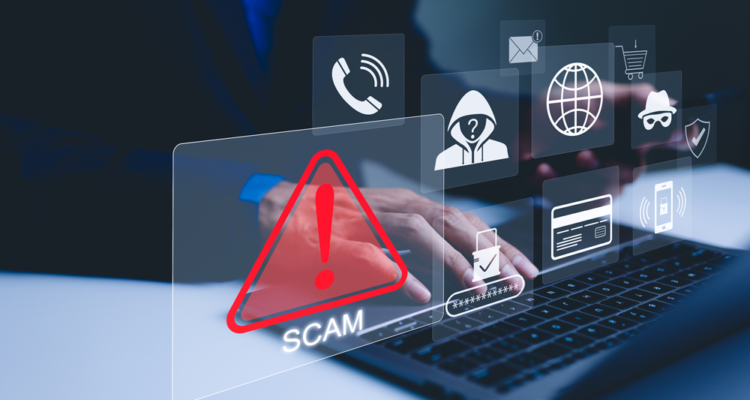
Why cybersecurity must be part of your business strategy
November 5, 2025Cybersecurity is no longer just an IT concern — it’s a critical business strategy. Every business holds sensitive information that, if compromised, can cause significant harm to both the organisation and its customers.
The greatest cybersecurity risks often come from external threats exploiting internal weaknesses, such as phishing links, malware downloads, or fraudulent payment requests.
Professional firms and financial service providers are especially attractive targets due to the high-value data they hold. In fact, outside government organisations, the financial services sector was the most targeted industry in Australia in FY2024/25, with cybercrime costs rising by up to 55% for small and medium businesses.
People: the biggest cyber risk
Where should your cybersecurity strategy start? With your people.
Human error is the biggest vulnerability for Australian businesses — responsible for more than 85% of all cybersecurity incidents. The top three incident types rely on staff actions or business decisions to gain access to systems.
That’s why regular staff training is essential. Training should focus on:
- Recognising phishing and social engineering attempts
- Identifying suspicious emails and attachments
- Maintaining strong password and multi-factor authentication practices
Building a culture of cyber awareness is your first line of defence.
Technology and updates: close the gaps before attackers do
Legacy systems pose another major risk. Outdated software, unsupported hardware, and neglected updates create easy entry points for attackers.
It may feel inconvenient to regularly restart devices or update systems, but doing so closes critical security vulnerabilities.
The Australian Signals Directorate’s Essential 8 Framework recommends:
- Applying all critical vendor patches within 48 hours of release
- Applying non-critical patches within two weeks
- Ensuring this applies across networking equipment, third-party software, and device operating systems
Recently, Microsoft announced the end of life for Windows 10, meaning devices running that system will no longer receive security updates — a major opportunity for malicious actors to exploit.
Visibility and monitoring: detect threats early
You can’t protect what you can’t see.
Effective cybersecurity depends on visibility — having the right monitoring, logging, and alert systems in place to detect unusual activity.
For example, in Australia, it takes an average of 288 days for financial services businesses to detect a data breach. That’s nearly 10 months of potential unauthorised access to customer data, contact lists, and internal systems.
Establish automated event logging and alerts so you’re notified when something suspicious occurs — such as a user logging in from two countries within hours, or unauthorised access to key files.
Early detection allows faster response, limiting the scope and cost of an incident.
The importance of a cyber incident response plan
A Cyber Incident Response Plan (CIRP) is not just a compliance document — it’s a roadmap for how your business will act, contain, and recover from a cyber event.
A well-structured CIRP should include:
- Defined incident management team roles
- Detection methods and escalation processes
- Incident categorisation and communication protocols
- Evidence collection and documentation procedures
- Clear containment and resolution plans
Regularly testing your CIRP ensures your business can act swiftly and effectively in a crisis — managing technical recovery, legal obligations, and stakeholder communications.
Protecting your business, clients, and reputation
In today’s digital economy, cybersecurity is essential to business continuity, financial stability, and customer trust.
Your cybersecurity and risk management strategy should incorporate:
- Staff training and awareness
- Up-to-date technology systems
- Data and information handling policies
- A tested cyber incident response plan
Treat cybersecurity as a core business strategy, not just an IT function. By doing so, your organisation can better protect its reputation, finances, and clients — and position itself to thrive in an increasingly connected world.
Contact Indigo Financial on (08) 8212 8585 if you need help with any of your accounting and taxation needs.
Note: The material and contents provided in this publication are informative in nature only. It is not intended to be advice and you should not act specifically on the basis of this information alone. If expert assistance is required, professional advice should be obtained.
Back to News Page



